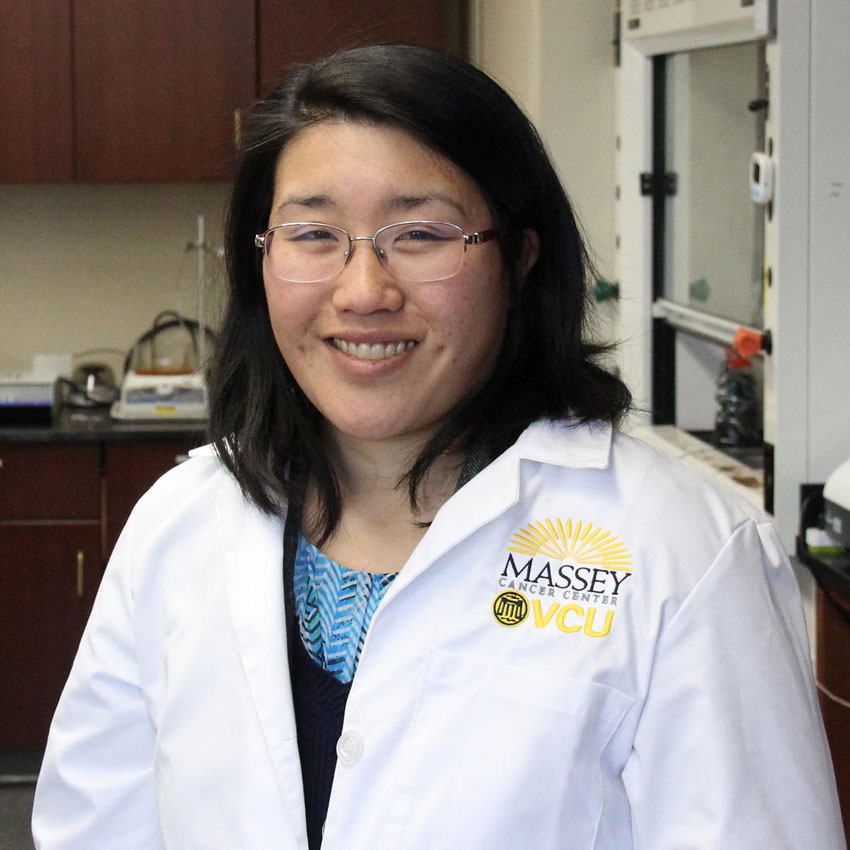By VCU Massey Cancer Center
Christina Tang, Ph.D., designs novel chemotherapeutic systems in an attempt to gain insight on new drug combinations that could enhance the treatment of drug-resistant solid tumors such as breast, ovarian and prostate cancers.
Tang joined VCU Massey Cancer Center as a member of the Developmental Therapeutics research program in 2018 and is an assistant professor in the Department of Chemical and Life Science Engineering at the VCU College of Engineering.
Her primary research focuses on formulating chemotherapeutic systems that package molecules together to increase their efficacy in drug-resistant solid tumors.
“My goal is to use clinical drug regimens as inspiration to design and engineer nano-scale packages of combinations of well-established small molecules,” Tang said. “For example, we aim to make nanoparticles to deliver multiple cancer drugs and tweak their release rates so that one delivers first to improve the efficacy of the second drug.”
Tang is excited about the emergence of chronobiology as an area of cancer research, where scientists are beginning to better understand the timing of molecular processes in order to design nanoparticles that function in synchronicity with the natural activity of cancer cells.
In collaboration with cellular biologists, Tang hopes she can use her chemical engineering background to further explore the field of chronobiology and potentially develop more effective cancer medicines.
“Cancer is a natural application for nanomedicine,” Tang said. “In cancer models, the vessels around blood vessels leak and let smaller particles in. If you can develop particles that are 200 nanometers or smaller, then they will preferentially be drawn to cancer cells compared to healthy tissue.”
Tang grew up in California near Los Angeles and received a bachelor’s degree in general engineering from Harvey Mudd College. She earned a Ph.D. in chemical and biomolecular engineering from North Carolina State University and completed a post-doctoral fellowship at Princeton University.
She has been published in more than 25 peer-reviewed journals including CHEST, Journal of Materials Chemistry B and Langmuir. Tang received a CAREER award from the National Science Foundation; she is a member of the American Institute of Chemical Engineers and the American Chemical Society.
As the principal investigator on two studies, Tang has previously received grant funding through the U.S. Army and the VCU Presidential Research Quest Fund.
She often looks to Alton Brown as a source of inspiration because of the way that he is able to explain complex, scientific things in a manner that is entertaining and informative. Tang’s scientific influences include Leonardo da Vinci, a self-taught “systems engineer,” who combined elements of machines to improve and invent designs to solve problems.
Tang lives in Richmond where she volunteers regularly at the Science Museum of Virginia and enjoys rowing on the James River.
